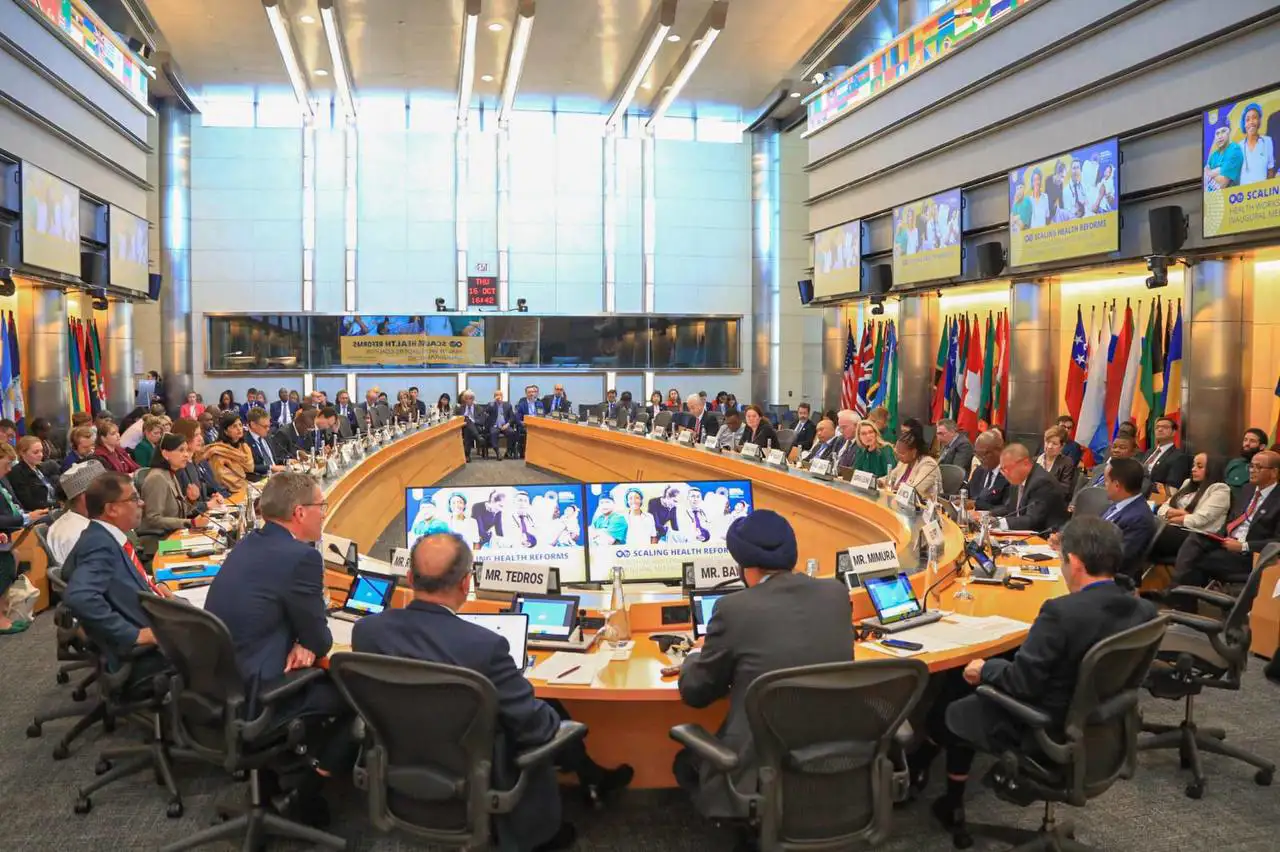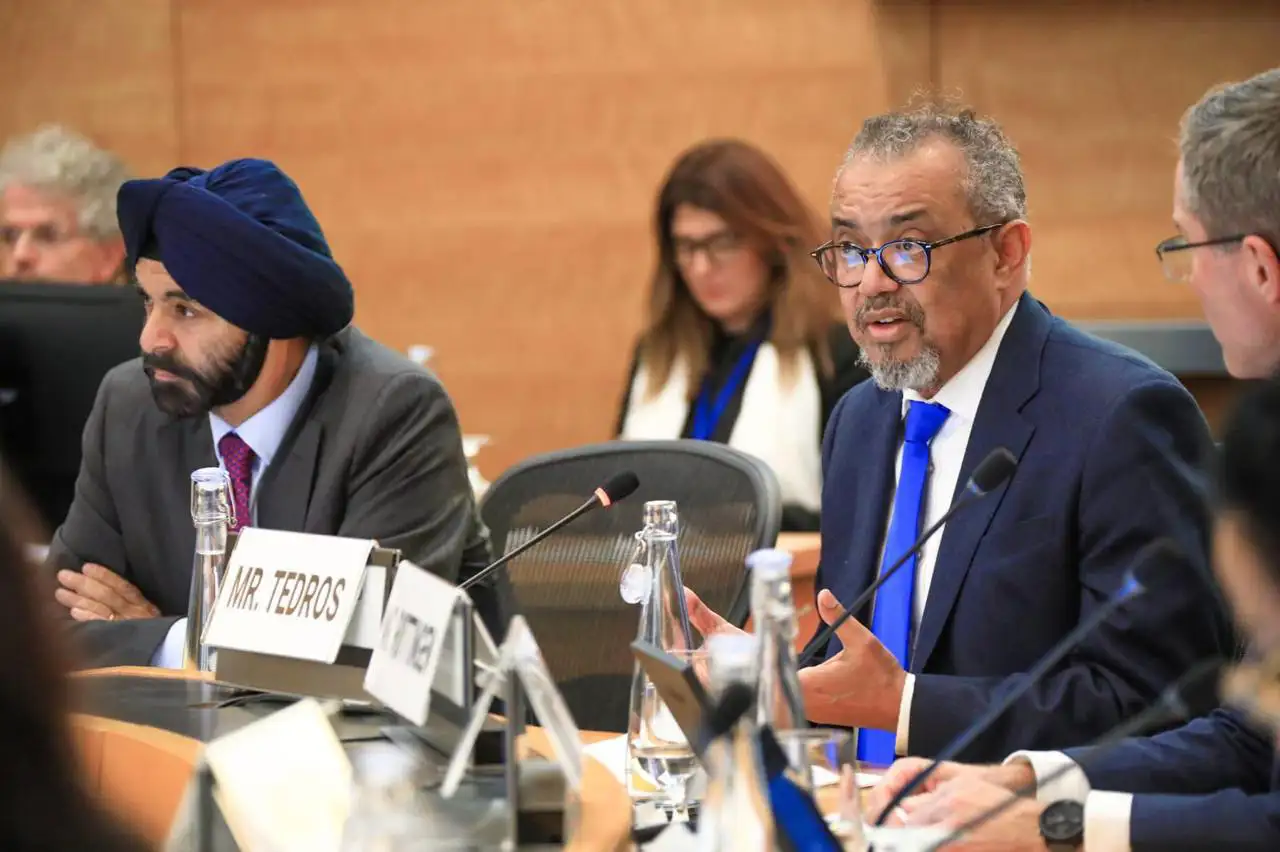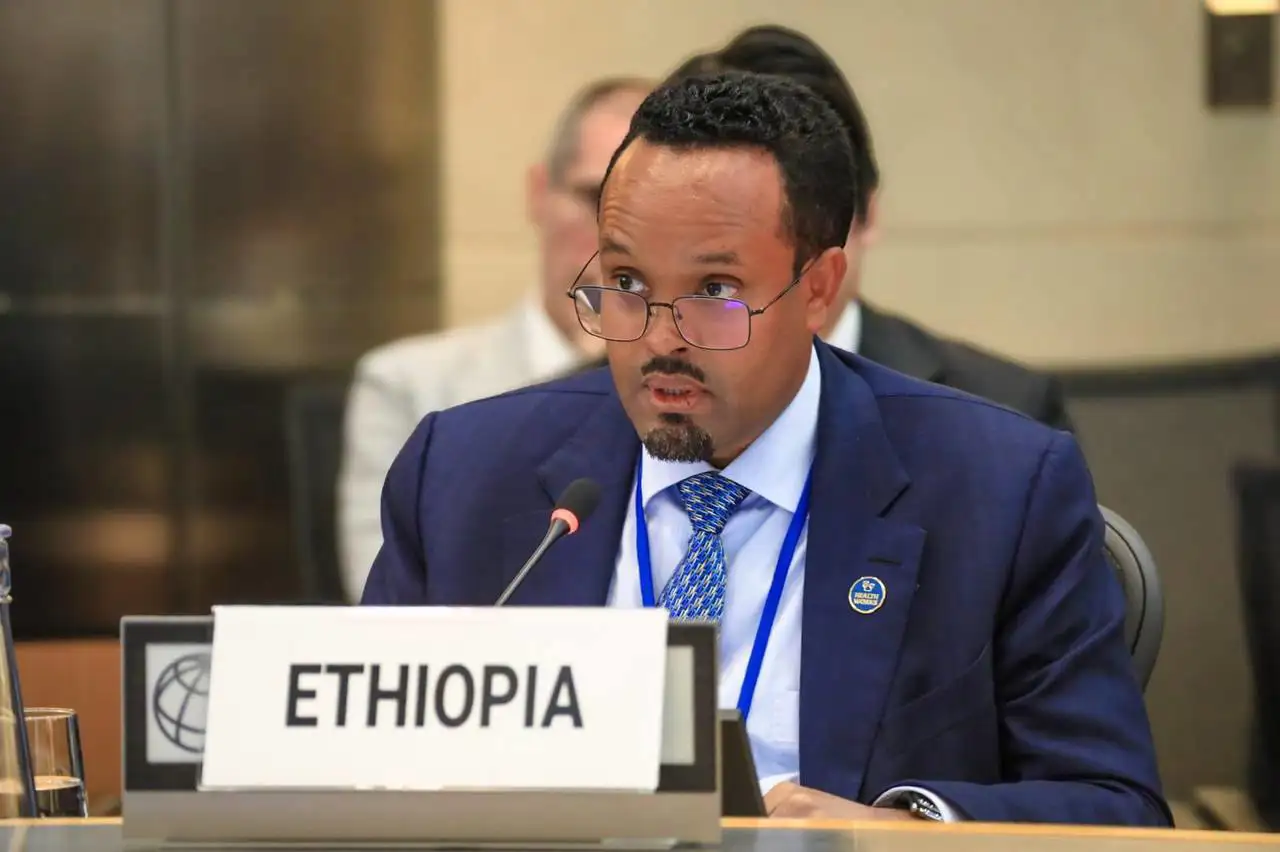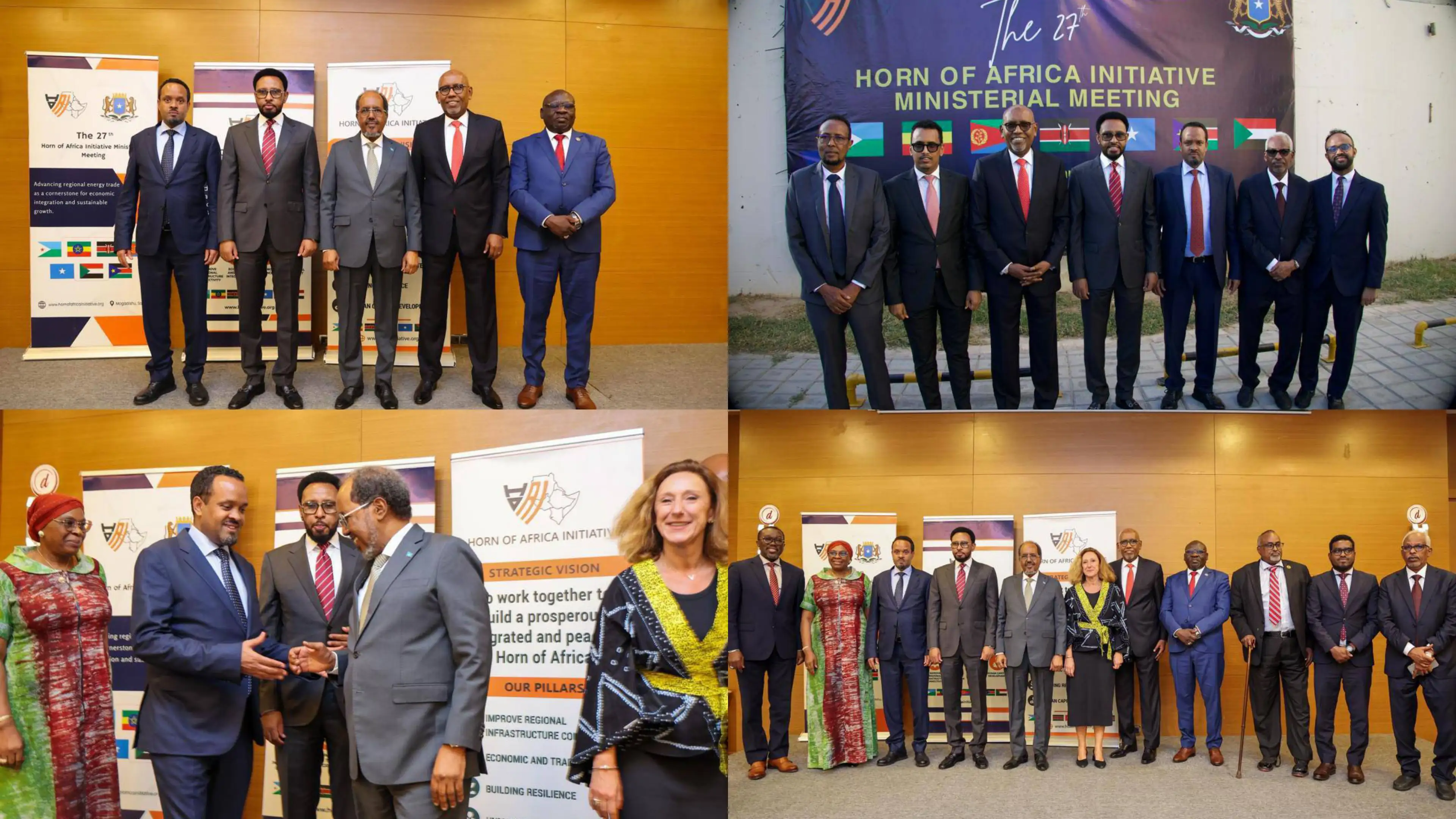Ethiopia has laid out an ambitious four-pillar strategy to build a resilient and self-reliant health system.
Ahmed Shide, Ethiopia’s Minister of Finance, presented the plan during the inaugural Health Works Leaders’ Coalition Roundtable in Washington, D.C., held on the sidelines of the 2025 World Bank and International Monetary Fund (IMF) Annual Meetings. The high-level event, co-chaired by the presidents of the World Bank and the director-general of the World Health Organization (WHO), convened global leaders to accelerate progress toward Universal Health Coverage (UHC).


Minister Ahmed acknowledged Ethiopia’s significant strides in expanding primary healthcare access but warned that global disruptions and the subsequent reduction in foreign aid are placing increasing pressure on national resources.
A Strategy for Self-Reliance
To counter these challenges, the minister outlined a comprehensive transformation strategy for the health sector:
- Expanding Insurance Coverage: A focus on broadening community-based health insurance to secure domestic funding streams.
- Regional Security Hub: Positioning Ethiopia as a key regional leader in health security.
- Efficiency Gains: Committing to improving health spending efficiency by 20% over the next three years.
- Private Sector Integration: Actively strengthening private sector engagement in the delivery of health services.
The finance minister also highlighted a long-term economic opportunity, noting Ethiopia’s burgeoning pharmaceutical manufacturing capacity and its potential to leverage export opportunities under the African Continental Free Trade Area (AfCFTA) framework.
During the Roundtable, Ethiopia's commitment to equitable healthcare was further underscored by its confirmation as one of the eight countries selected for the Universal Health Coverage (UHC) program.
Minister Ahmed announced that the government is now developing a National Health Compact, which will serve as a foundational document for its reform agenda. This compact is scheduled to be formally unveiled at the upcoming UHC Forum in Tokyo this December. The moves signal a concerted effort by Addis Ababa to accelerate health system reforms and solidify sustainable, domestically driven funding for its citizens' care.




